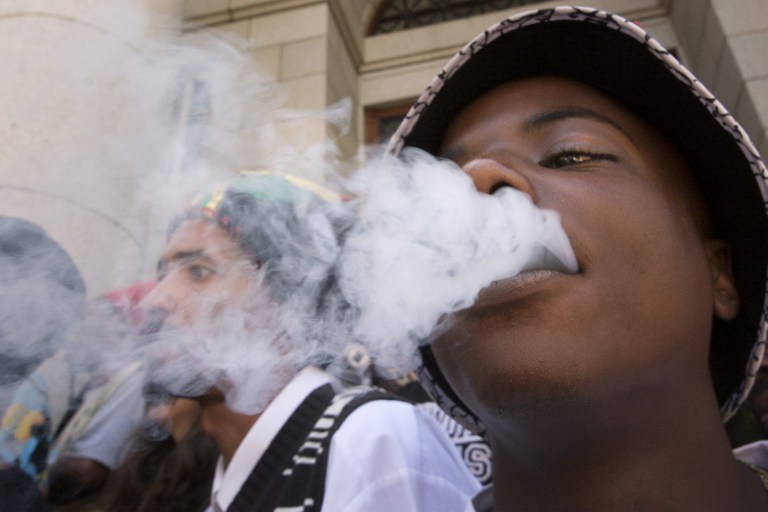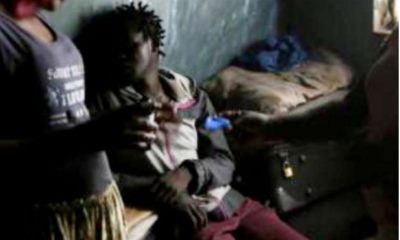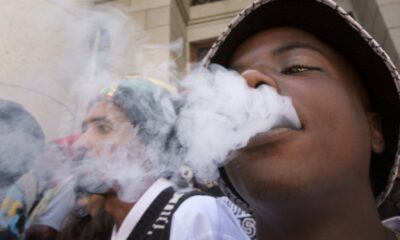SUBSTANCE abuse continues to escalate in the country and is now a menace in both high-density and low-density suburbs, as well as schools, including elite private institutions. Drug abuse has resulted in an increase in mental health cases countrywide.
NATHAN GUMA
Just last week, the Dominican Convent in Harare, a Roman Catholic-run school expelled eight Upper Six students on allegations of drug abuse.
The girls allegedly abused drugs during leadership camp in Nyanga.
Sister Kudzai Mupfure, the headmistress, informed parents in a circular that the school’s investigations showed the pervasive behaviour started at home.
“My heart aches for these girls and their parents, but my duty of care is to ensure that the school environment is as far as is practicable, safe and free from all risks.
“I pray that the girls will get the rehabilitation they need and that all parents take an active role in partnership with the school community and possessing, using or supplying a restricted substance including vaping is not acceptable. Investigations are still ongoing and we will not hesitate to weed out any more culprits to sanitise the school space,” Mupfure said this week in a statement.
On Friday this week, the school was forced to suspend lessons after baton-wielding police officers showed up on a fact-finding mission with Central Investigation Department (CID) detectives.
Some of the uniformed officers invaded the boardroom and disrupted a staff meeting, convened to discuss the matter.
Influence of social media
Some stakeholders in the fight against drug abuse say social media and the harsh economic climate have been major contributors to drug abuse.
“What has changed from the old times is social media. Social media is now unlimited, as parents do not have control over their children’s cellphones. People need to start thinking about cellphones. And, the content is not screened. They will have access to everything.
“And, besides the fact the economy is not doing well, parents are struggling, everyone is struggling, the social pressure — I will put social media at number one.
“Studies show that teens who watch movies that depict smoking or alcohol consumption are more likely to engage in those behaviours themselves. Unrestricted social media is a disaster to kids,” said Savannah Madamombe, co-founder of community activist group Mubatirapamwe.
Madamombe said the situation has been ongoing, but with limited intervention from all stakeholders involved.
“Social media is influencing young teenagers and students in a serious way. If you look at our social media in Zimbabwe, the use of drugs and substance abuse — people partying and using drugs is viewed as a cool thing. For me that is the first issue because every child who is at school has a cellphone which has access to data and unlimited social media,” she said.
“Which means we are opening up the space. So, even if you think you are influencing your child, the child is being influenced from Los Angeles due to the content they are watching. And they will be watching content which they can barely understand, and they get influenced.
“Young people are living in London, yet in Harare. And, if you look at the competition they will be doing, they are trying to live as if they are elsewhere in Los Angeles.
Hence, they end up doing things which they cannot understand. Social media is number one on influencing young people with drugs,” she said.
Drug dealers
As previously reported by The NewsHawks, drug dealers have been flooding schools with illicit drugs.
Disguised as muffins, ganja cakes are also being sold in schools by some children working with drug syndicates which have terrorised townships, setting up base and flooding the market with dangerous narcotics.
In Kambuzuma, parents have reported cases of drug abuse among their children who are now in the habit of skipping school to sniff the dangerous substances.
In Bindura and Guruve, in Mashonaland Central province, a dangerous beer called “Tumbwa” has ravaged lives. This has been one of the substances being consumed by young people in high-density areas like Mbare, among others.
The brew is disguised in freezit packaging, with parents fearing the dangerous homemade whiskey will be sold in schools.
Low income problem?
Psychologist Noreen Dari says the problem is not only restricted to low-income people. “Whether the child is male or female, Form 1 or 6, the problem is still the same. The biggest driver is peer pressure. The situation is also popular in affluent schools. The problem is that people always assume poverty is the only risk factor,” she said.





















